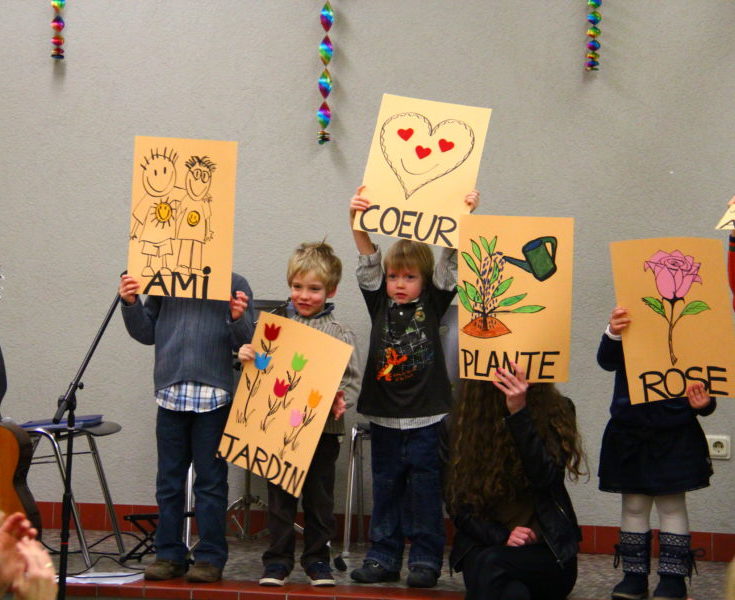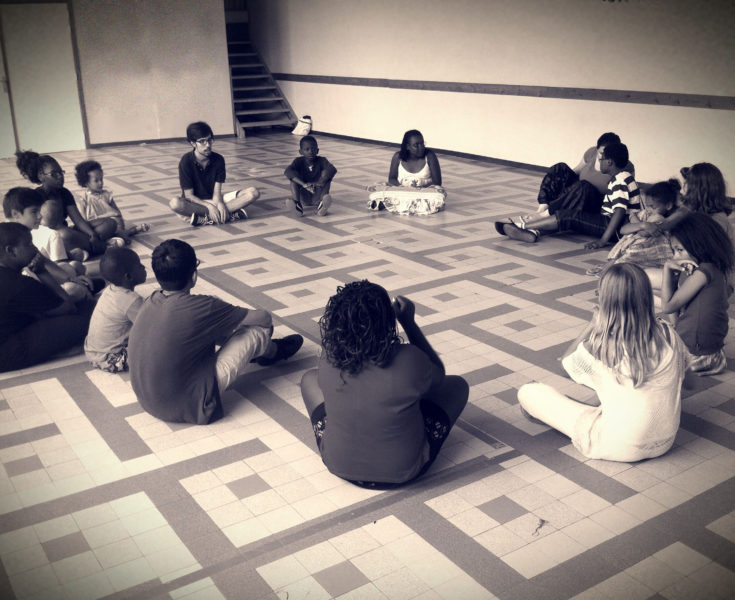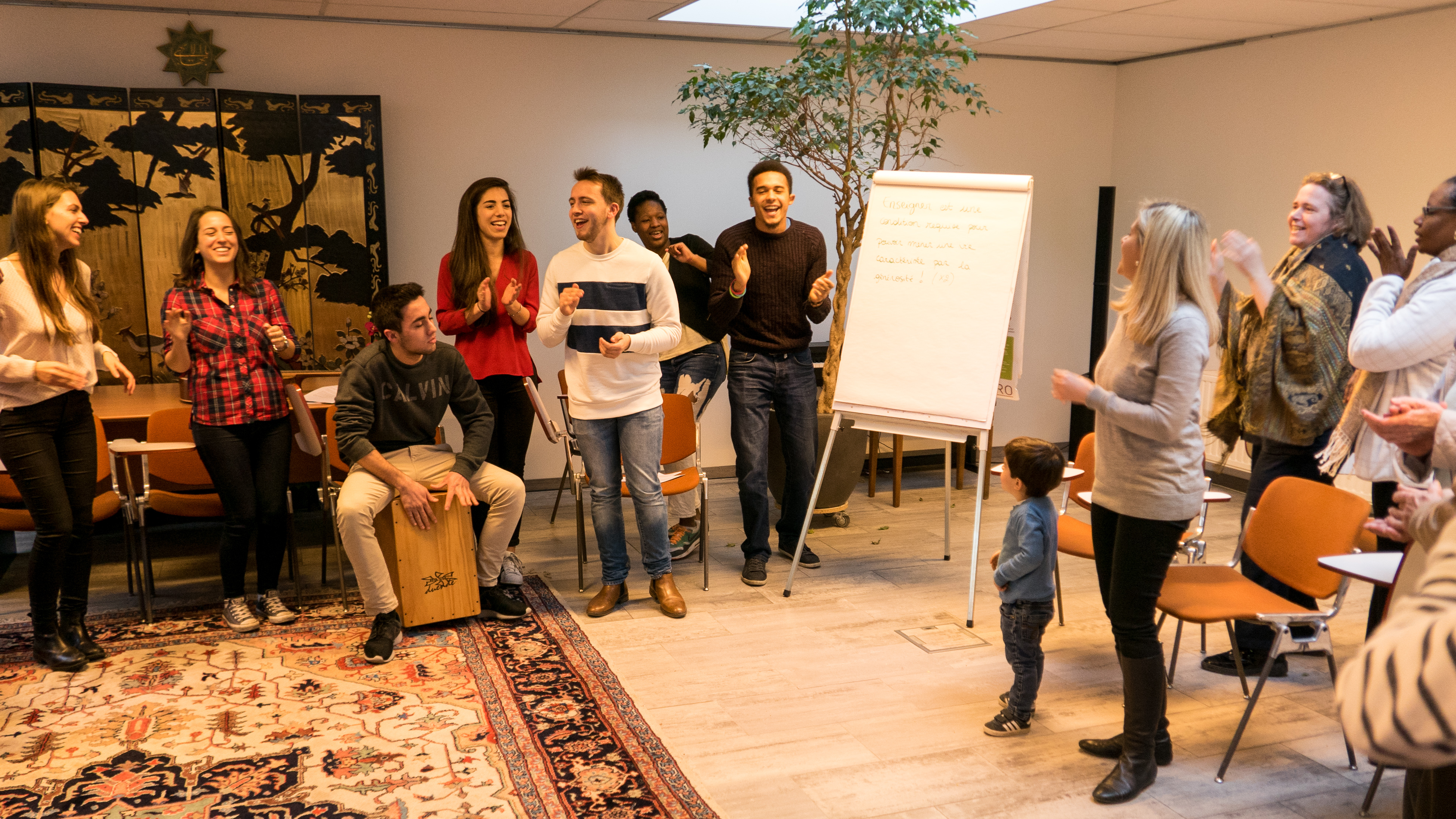
WHAT WE DO
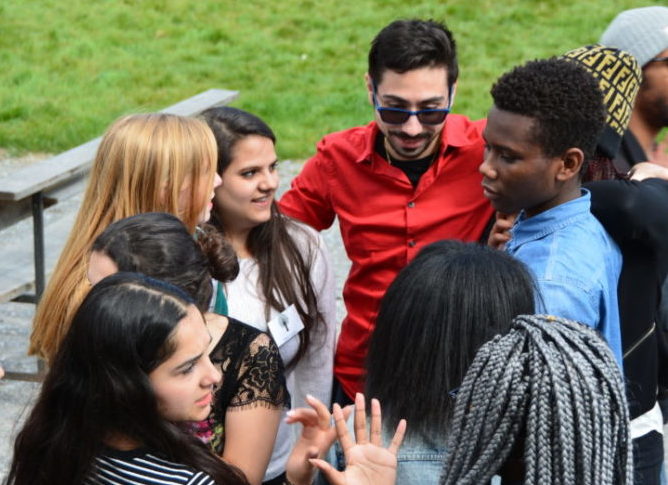
Bahá’ís see themselves as part of a local, national and global community. Every effort is made to ensure that this community is vibrant and open to all people. ‘Abdu’l-Bahá counsels us: “See ye no strangers; rather see all men as friends, for love and unity come hard when ye fix your gaze on otherness. … For each of the creatures is a sign of God, and it was by the grace of the Lord and His power that each did step into the world; therefore they are not strangers, but in the family; not aliens, but friends, and to be treated as such.”
WHAT WE DO 
Bahá’u’lláh tells us that we have all been created to “carry forward an ever advancing civilisation”. Because the Bahá’í Faith has no clergy or church in the conventional sense, the growth and development of the Cause lies in the hands of all the believers.
While the Bahá’í teachings emphasize that each of us is responsible for our own spiritual development, this development depends directly on our awareness of and involvement in the life, the needs, and the improvement of society around us.
These two processes are completely interdependent and reciprocal. Bahá’ís see themselves as walking a path of service in the company of others, each giving and receiving love, assistance and encouragement.
Each is asked to make a daily effort to reflect and progressively implement in their lives the high standards of conduct and aspiration described by Bahá’u’lláh.
WHAT WE DO 
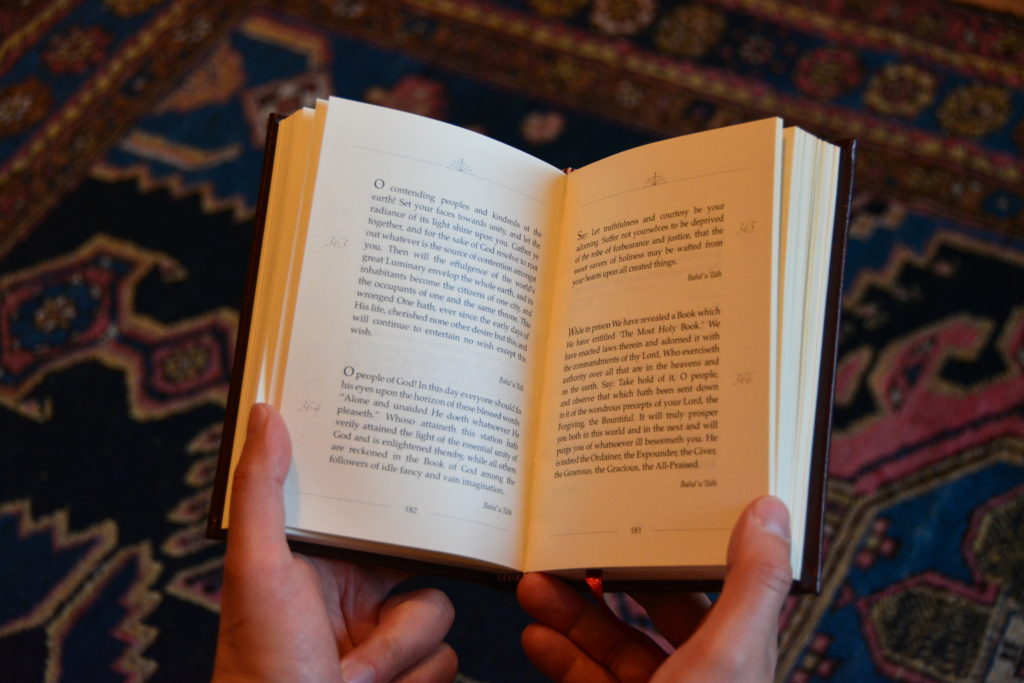
“I bear witness, O my God, that Thou hast created me to know Thee and to worship Thee. I testify, at this moment, to my powerlessness and to Thy might, to my poverty and to Thy wealth. There is none other God but Thee, the Help in Peril, the Self-Subsisting.”
—Bahá’u’lláh
The Bahá’í scriptures are rich in prayers and devotional writings of great beauty and depth. Daily prayer is an important element in both a spiritual and practical life. It can be personal and private, or enjoyed in the company of others. It is a source of comfort, sustenance and energy, which primes us for meaningful action and prepares us for the many ups and downs we may encounter on the path of service to humanity.
WHAT WE DO 
The Bahá’í community sees the family unit as the nucleus of human society—a space within which praiseworthy morals and capacities essential to the betterment of society are to be developed. It recognizes that the habits and patterns of conduct nurtured within the family are carried into the workplace, into the local community, into the social and political life of the country, and into the arena of international relations.
Bahá’í families strive to nurture love for all people, tolerance of differences, an acute sense of justice, and empathy for others. Great efforts are made to raise children who understand the oneness of humanity and so view every soul, irrespective of religion, ethnicity, or any other affiliation, as a fellow human being, and to give expression to Bahá’u’lláh’s invocation to regard one another as “the fruits of one tree, and the leaves of one branch.”
Bahá’ís see the young as the most precious treasure a community can possess. In them are the promise and guarantee of the future. Yet, in order for this promise to be realised, children need to receive spiritual nourishment. In a world where the joy and innocence of childhood can be so easily overwhelmed by the aggressive pursuit of materialistic ends, the moral and spiritual education of children assumes vital importance.
WHAT WE DO 
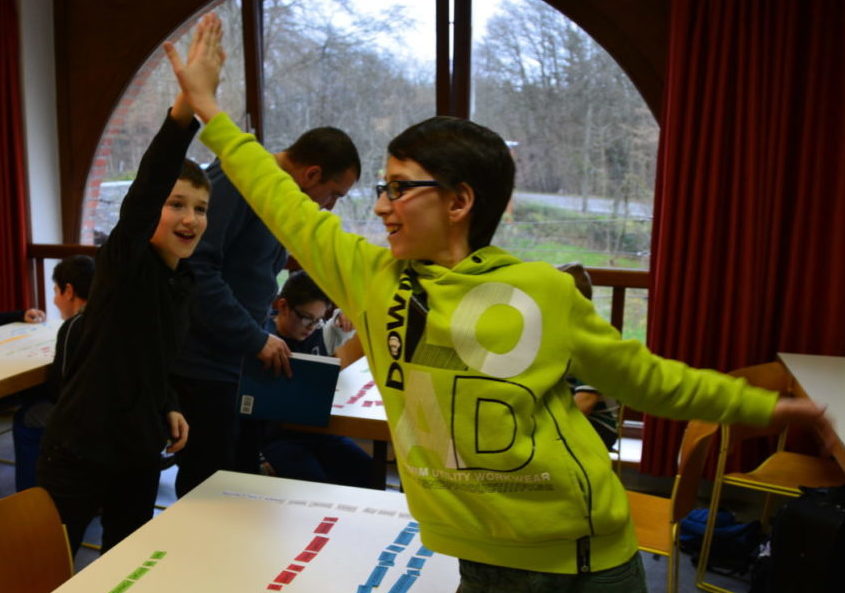
The term Junior Youth refers to individuals between the ages of 12 and 15. This transitional period from childhood to youth is characterized by an acute sense of justice, rising idealism and a desire to contribute to the betterment of the world. The Bahá’í community has developed a programme which empowers the junior youth to take ownership of their actions in all spheres of life in a positive way.
WHAT WE DO 
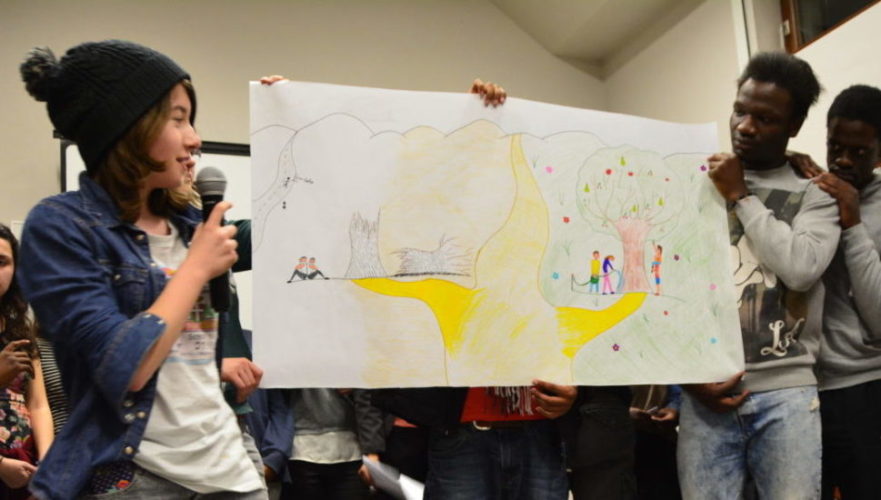
From the early beginning of Bahá’í history until now, youth have always played a central role in the Faith. From the heroic actions of the young early believers, to the vital role youth play today as animators of Junior Youth Groups and teachers of Children’s Classes, youth have been and continue to be a driving force in community life. The defining characteristics of this period of life – the energy, enthusiasm, and eagerness to contribute to a better world, to name a few – have yielded many fresh ideas, perspectives, talents, which contribute to the spiritual and material advancement of civilization.
WHAT WE DO 
Candid, dispassionate and cordial consultation is vital to the success of any collective enterprise and its centrality to the functioning of Bahá’í institutions is one of the hallmarks of the operation of the Bahá’í administrative order. The purpose of such consultation is not only to provide a framework within which collective decisions can be taken—important though this is. It is a means of harmonizing points of view, promoting unity among the members of the community, of strengthening the bonds of trust and love between individuals and institutions; and of allowing new insights into complex issues to be brought forth and examined dispassionately. It also serves to foster systematic action, preserving focus among the participants in a given line of action and allowing for diverse perspectives to be integrated into the group’s understanding of the issues at hand, and guiding the progress of their related activities. In this regard, consultation is an essential component of the mode of learning adopted by the Bahá’í community across the range of its endeavours.
Effective consultation, which neither permits confrontation and argumentation, nor the imposition of views or plans, is central to the functioning of Local and National Spiritual Assemblies. Yet, the principles of consultation are applied, with varying degrees of formality, in numerous other spaces: among different institutions and administrative bodies; within the family unit; between institutions and the community; among the participants in specific projects, and—with increasing prevalence—among the individuals and agencies working at the local level to coordinate the contributions of the Bahá’í community to the betterment of society.
“…Bahá’í consultation is to be undertaken with the utmost love, sincerity, and unity. Its participants must come together in a prayerful attitude, seeking assistance from the Realm of Glory, expressing their thoughts freely, surrendering all attachment to their individual opinions, and giving fair-minded and careful consideration to the views of others, in an effort to reach consensus. ‘Abdu’l-Bahá advises us that should it be found, in the course of coming to a decision, that discussion has become prolonged or given rise to disputation, consultation should be deferred and taken up at a more propitious time. Be confident that, as you engage in Bahá’í consultation among families or in small groups, your sincere efforts to abide by these principles will, through the power of the Covenant and with Divine assistance, enable you to resolve a great majority of the issues that confront you. Of course, it must be remembered that the purpose of consultation need not always be to arrive at a particular or final decision. Often the aim may simply be to engage in an exchange of views so as to help clarify a certain matter and bring about unity of vision.”
The Feast was ordained by Bahá’u’lláh; He counseled His followers to meet once every Bahá’í month, even if “only water be served”. “This feast”, states ‘Abdu’l-Bahá, “is held to foster comradeship and love, to call God to mind and supplicate Him with contrite hearts, and to encourage benevolent pursuits.” “It rejoiceth mind and heart”, He writes in another passage. “If this feast be held in the proper fashion, the friends will, once in nineteen days, find themselves spiritually restored, and endued with a power that is not of this world.”
Although the Nineteen Day Feast may assume different outward forms in different parts of the world, reflecting the conditions and customs of the local community, its program always includes the reading of prayers, a portion devoted to sharing news and consulting on community affairs, and a portion for socializing and fellowship.
The Nineteen Day Feast provides an opportunity for the community to gather and discuss its affairs, and for the Local Spiritual Assembly—the local governing council of the Bahá’í community—to keep abreast of the concerns of the community and strengthen its relationship with it. Consultation at these regular gatherings also creates a space for growing social consciousness to find constructive expression and often leads to the emergence of small groups engaged in action.
Because the Bahá’í Faith has no priesthood or professional clerical class, its administration and organization falls to the believers themselves, who consider this service to the community as both a spiritual duty and a privilege. The Faith is unique in the history of World Religions inasmuch as its Administrative Order forms an integral part of the Revelation of Bahá’u’lláh.
In every locality where nine or more believers reside, a Local Spiritual Assembly is elected every year to manage the affairs of the community and guide its development as good parents guide their family. The same takes place at the national level, through the intermediary of a convention of delegates elected by the adult believers of each region. Every five years the members of all the National Spiritual Assemblies come together in Haifa, Israel, to elect the Universal House of Justice, the supreme legislative body and guiding hand of the Bahá’í World Community.
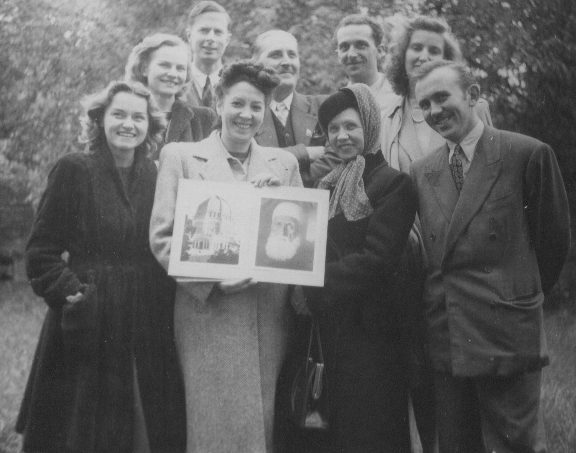
Elections to Bahá’í Spiritual Assemblies take place as a secret and fully independent ballot in an attitude of prayer according to the principle of universal active and passive suffrage. This means that those who are legible to vote are, by default, also candidates. There is no electoral campaign and neither is canvassing or the promotion of any particular person permitted. Spiritual Assemblies strive for unanimity in their deliberations, but where differences of opinion still remain, a simple majority, which all are then committed to support, carries the decision. Frank and open consultation, a free exchange and appreciation of divergent views, is essential to the good functioning of an Assembly. No one need feel tied to their own opinion. Once given, the opinion belongs to the table. The one who gave it is then as free as any other to change their mind.
A reflection meeting is a grassroots consultative process in which individuals engaged in the activities of the Bahá’í community assemble from time to time to reach a consensus on the current status of their activities and determine their next step forward.


